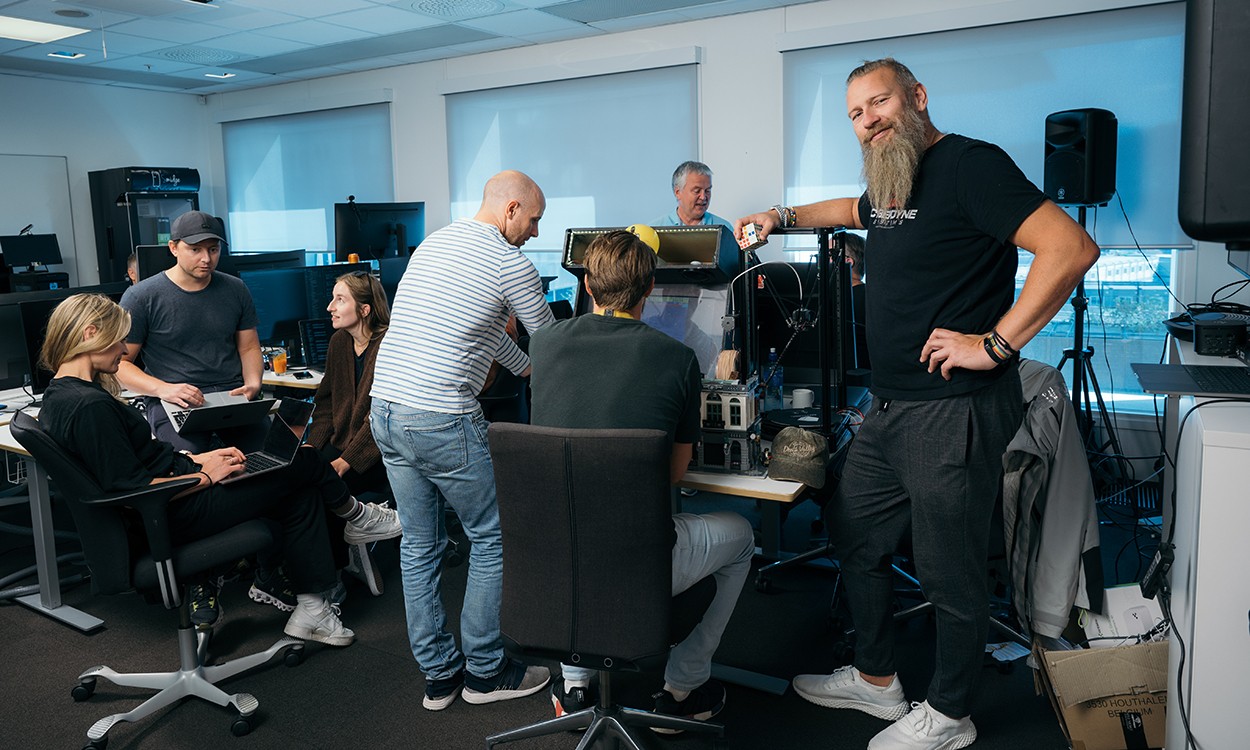This is the first time a group of Norwegian student volunteers has developed, built, delivered and communicated with a satellite in space on its own.
The NTNU Orbit student organization has made contact with its first satellite, Selfiesat. This happened at 9:25 p.m. on August 29.
The student organization says that the next few days are used to analyze the data and start the rest of the system on the satellite, making it possible to take “selfies” from space in the future.
– Satellites show that students with commitment and free time can achieve the most extraordinary things, wrote Ulrik Falk-Petersen, who heads NTNU’s Orbit, in a press release.
More than 150 students have contributed to make this project a reality.
With SpaceX
The SelfieSat was sent into space in May, aboard SpaceX’s Falcon 9 rocket.
SelfieSat will take the world’s first selfie from a satellite in space. The external LCD screen displays publicly-submitted images. The camera mounted on the folding selfie stick takes a picture of the screen with the Earth in the background.
The goal of this project is to inspire and bring space a little closer, and show how space is accessible to most people.
SelfieSat’s last orbit was a low Earth orbit in the range of 530-558 km.
Leg: NTNU Orbit
Hill station in Trondheim
SelfieSat is connected to an NTNU student earth station, a radio tower at the NTNU office in Trondheim. From here, students will send and receive space selfies, status updates, and sensor data on a regular basis.
A specially trained operations team will handle all orders and tasks for the satellite.
Now student organizations are also working towards the launch of the FRAMSat-1 satellite, which is scheduled to be launched from Norwegian soil in 2023. This satellite has been built with the experience and technology of SelfieSat, and will be the first to be launched into orbit from European soil.
About NTNU Orbit:
NTNU orbit is a student organization where students from various fields of study build small satellites (CubeSats) alongside their studies. The organization stems from a previous student satellite project at NTNU, and took its current form in 2018. Students at NTNU Orbit are self-employed, but have university support. The main goal of Orbit NTNU is to provide opportunities for students to learn to build satellites, regardless of their field of study, as long as there is a commitment and willingness to learn. SelfieSat is Orbit’s first satellite, and was launched into low-Earth orbit in May. FRAMSat-1 is NTNU Orbit’s second satellite project. Everyone from first-year students to doctoral scholars have helped build the satellite.

“Music maven. Evil pop culture lover. Unapologetic creator. Friend of animals everywhere.”






